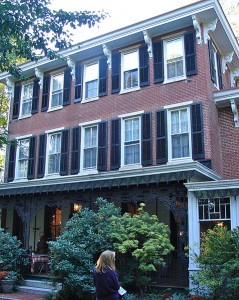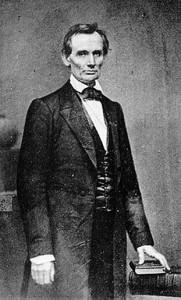Local Legal Tourist Attractions – Faunbrook, Home of First Woman Attorney in Chester County
 Today’s local legal history site is not exactly a tourist attraction. It is currently a bed and breakfast. Faunbrook, in West Chester, was the home of the Darlington family, including Isabel Darlington, the first woman admitted to the Chester County Bar and one of the earliest woman lawyers in Pennsylvania.
Today’s local legal history site is not exactly a tourist attraction. It is currently a bed and breakfast. Faunbrook, in West Chester, was the home of the Darlington family, including Isabel Darlington, the first woman admitted to the Chester County Bar and one of the earliest woman lawyers in Pennsylvania.
Isabel’s father Smedley Darlington was a Congressman and a wealthy man but an economic panic in 1893 cost him a large part of his fortune. Isabel seems to have decided it would be a good idea if she entered a profession as an independent means of support. She started attending law school at the University of Pennsylvania in 1896, finished the three year course in 18 months, and was admitted to the bar on October 4, 1897.
She went into practice with her brother in law, Thomas Butler, in West Chester, handling estate, property and commercial cases. Probably her most prominent client was Pierre S. du Pont. Ms. Darlington handled the transaction when P.S. du Pont purchased Longwood. She practiced law for many years until her death in 1950.
Much of the information in this post comes from this Philadelphia Inquirer article.

